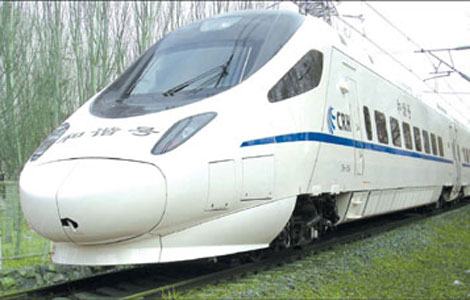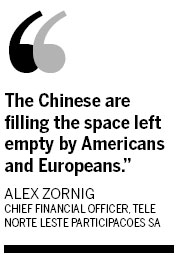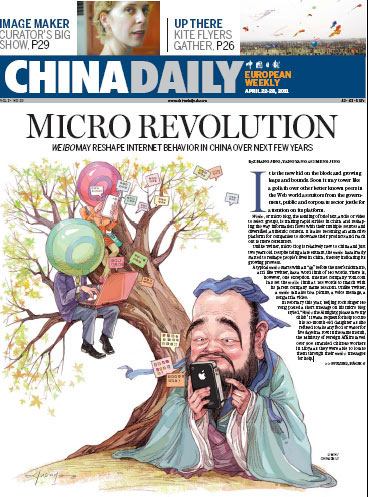Companies
CDB helping Chinese firms get global edge
Updated: 2011-04-26 13:17
By Edmond Lococo, Crayton Harrison and Michael Forsythe (China Daily)
BEIJING - When the Brazilian landline company Tele Norte Leste Participacoes SA was shopping for network equipment last year, Huawei Technologies Co Ltd's offer stood out: access to China Development Bank's (CDB) $30 billion credit line.
A two-year grace period on payments and an interest rate of 2 percentage points over the London interbank offered rate created an unbeatable deal, Tele Norte Chief Financial Officer Alex Zornig says.
CDB's support for Huawei and other Chinese companies is the cornerstone of the country's "going out" policy, meant to nurture companies in telecommunications, alternative energy and oil. The bank's low-interest loans dwarf those offered by the US and European development agencies, helping Shenzhen-based Huawei and crosstown rival ZTE Corp increase market share.
"Our support for Huawei, ZTE and other high-technology companies has opened up the overseas market," CDB's Chairman Chen Yuan wrote in the January issue of China Reform magazine. "We have become the principal source of finance of our country's overseas investments."
|
|
The terms of Tele Norte Leste's seven-year credit agreement give the company an interest rate of about 4 percent, Zornig said. Brazilian companies are paying an average borrowing cost for dollar debt of about 5.99 percent, according to JPMorgan Chase & Co.
In 2009, Mexico City-based America Movil SAB was also seeking $1 billion to upgrade its mobile network, and Chief Financial Officer Carlos Garcia Moreno reached the same conclusion as Zornig.
"People who were going to the market were often taking on very high interest rates," Garcia Moreno said. "The rates that many blue chips paid were very high. In that situation, we got very good financing."
Huawei's spokesman Ross Gan said that there's much "distortion" about the significance of the credit line from CDB, and what it means for the company's relationship with the government. Huawei is an employee-owned, private company and the government doesn't hold any shares, he said.
Huawei held about 15.7 percent of the $78.6 billion global market for carrier network infrastructure last year, second to Ericsson AB's 19.6 percent share, according to estimates from research company Gartner Inc on April 11.
While vendor financing in itself isn't unusual, the extent of the financial backing sets Huawei and ZTE apart, according to the Chinese companies' competitors.
As of February, CDB had lent a total of $10 billion to Huawei's customers, Hu said in the letter. The bank didn't respond to requests for comment about its relationship with Huawei and ZTE.
Vendor financing is "standard industry practice" and the amount received by Huawei's customers isn't out of line with what rivals such as Ericsson can offer through Sweden's export financing agency, Gan said. Huawei is a private company that makes decisions based on market principles, he said.
The practice of lending to customers backfired for Ericsson in 2002, when provisions for vendor financing bloated to 7.9 billion kronor ($1.30 billion) by the third quarter.
Bloomberg News
E-paper

Blowing in the wind
High-Flyers from around the world recently traveled to home of the kite for a very special event.
Image maker
Changing fortunes
Two motherlands
Specials

Models gear up car sales
Beauty helps steer buyers as market accelerates.

Urban breathing space
City park at heart of Changchun positions itself as top tourism attraction

On a roll
Auto hub Changchun also sets its sight on taking lead in railway sector





